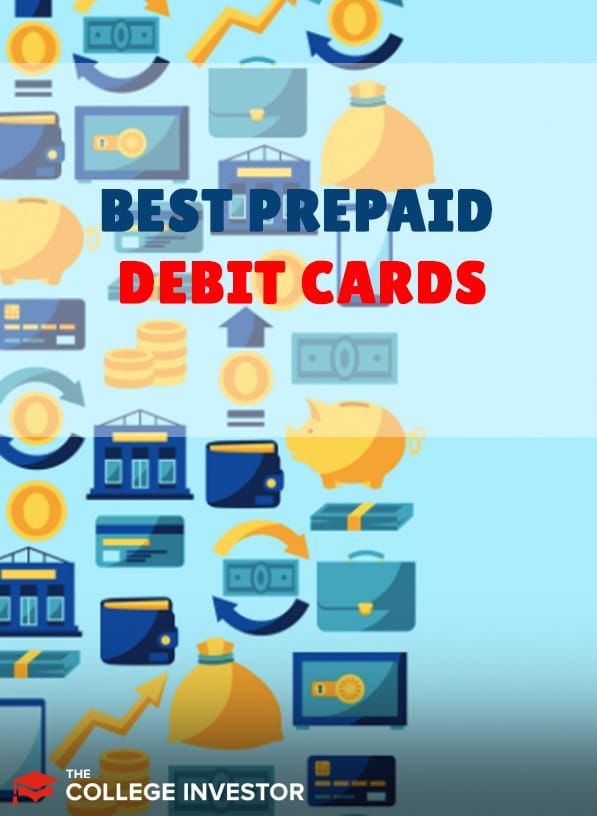
A prepaid debit card can be a useful financial tool. You won’t have to worry about overdraft fees while enjoying many of the same features offered by a traditional debit card.
But even if you’ve decided that you want to work with a prepaid debit card, it can be tricky to find the best option out there.
Luckily for you, we’ve taken the time to comb through the details to find the best prepaid best cards out there. Here’s what you need to know about this option and your best choices if you decide to move forward.
What Is A Prepaid Debit Card?
Prepaid debit cards operate like normal plastic cards when you are at the checkout counter. Plus, you’ll have account numbers to make online purchases.
However, prepaid debit cards are not linked to a bank account. Instead, you'll only be able to spend the money that you’ve loaded onto the card.
Since the card is not connected to your bank, you won’t have to worry about overspending or any overdraft fees. The downside is that you’ll likely have to pay a monthly fee. Additionally, many prepaid debit cards require you to pay a cash loading fee each time you add money to the card.
Unfortunately, there may be no way to work around fees if you want to use a prepaid debit card. However, it may still be worth the cost.
Who Should Use One?
If you want the convenience of paying with plastic but aren’t comfortable with the possibility of overspending, a prepaid debit card could be the right solution.
Another instance in which a prepaid card can be a useful tool is if you don’t have access to a checking account. Since these accounts are prepaid, a record of mismanaged bank accounts won’t hold you back.
Others rely upon prepaid cards as an easy way to receive and use their tax refund. In The College Investor's tax survey, 12% of respondents said they had opted for a prepaid debit card refund over a direct deposit. Check out our favorite tax software >>>
Finally, prepaid cards can be a smart way to introduce teenagers to money management. Without the possibility of overspending, they’ll be able to learn about money management with guardrails in place. See our favorite prepaid debit cards for teens >>>
The Best Prepaid Debit Cards
If you think a prepaid debit card is right for you, here are a few of your best options for 2023.
Walmart Money Card
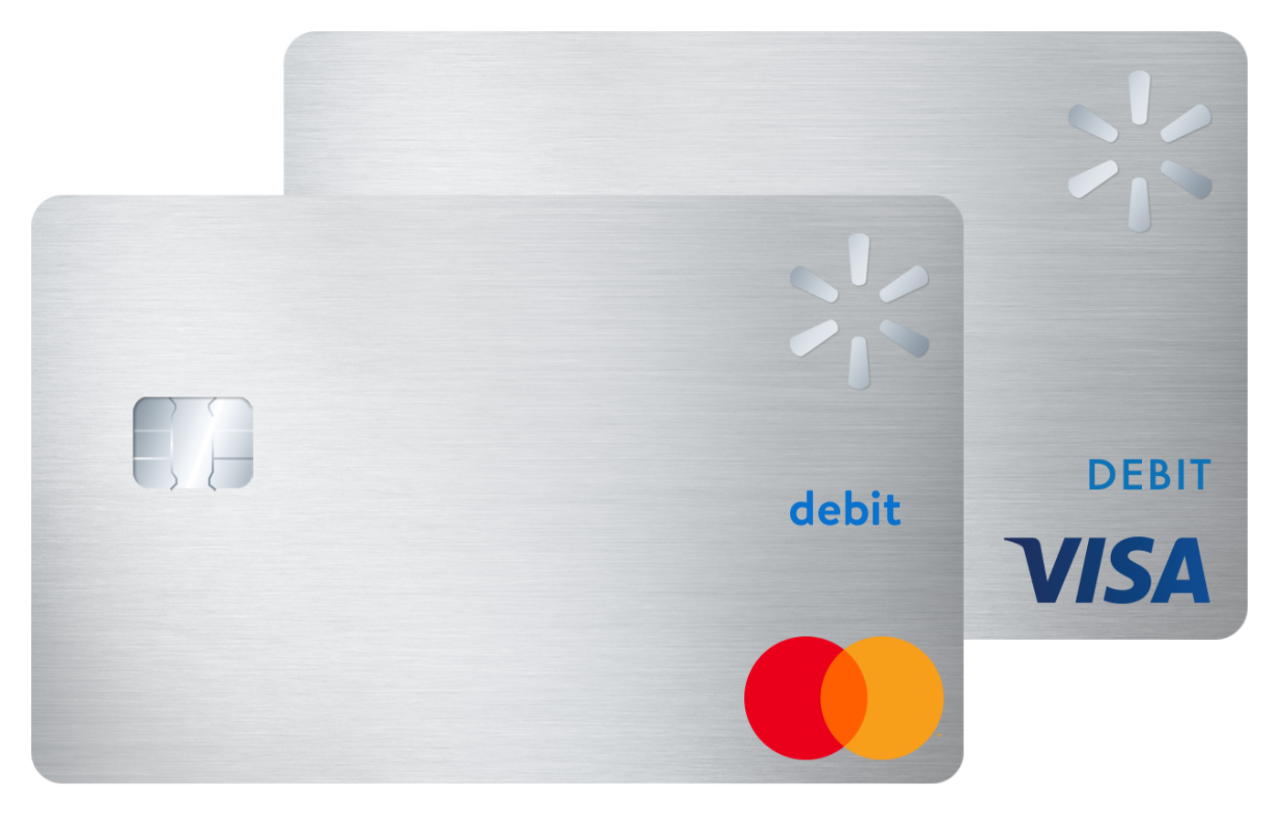
The Walmart Money Card is a fantastic prepaid debit card with great benefits if you shop at Walmart. The card offers 3% back at Walmart.com, 2% back at Walmart fuel stations, and 1% back in store, up to $75 per year.
Plus, you can get early direct deposit onto the card, and up to $200 overdraft protection, for purchase transactions with opt-in & eligible direct deposit.
There is a $5.94 monthly fee, but this can be waived with a qualifying direct deposit of $500 or more in the previous month.
Green Dot Card

The Green Dot Prepaid Visa Card is one of the most recognized options in this space. You’ll find that the card has plenty of features to make your life easier without signing up for a debit card.
Once you purchase your card, the flat fee structure of $7.95 will unlock all of the features this card offers. The standout features include free direct deposits, free ACH transfers, a mobile app to manage the card, and text alerts for suspicious activity.
You can have the monthly fee waived if you load more than $1,000 per month. But there is a reloading fee of $4.95 each time you add cash which can add up quickly.
If you're thinking about Green Dot, check out their banking product here: GO2Bank.
FamZoo
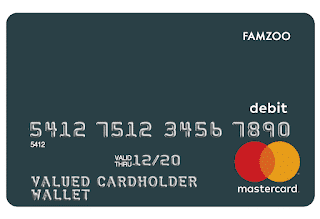
If you plan to allow your child to use a prepaid debit card, FamZoo is the best option out there. With FamoZoo, you can create connected accounts for your children which are associated with your "master" account.
Within the accounts, your children will have the option to set up a spending account that is linked to a card. As a parent, you’ll appreciate the wide variety of features that allow you to manage this financial teaching tool.
You’ll be able to lock the card when you choose to. Plus, you’ll have the option to add or remove funds as you like. FamZoo comes at a somewhat affordable price of $5.99 per month or $30 per year. The membership fee comes with four prepaid cards.
Want to learn more about FamZoo? Check out our full review.
American Express Serve
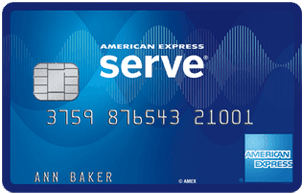
The American Express Serve could be the option you're searching for. With the American Express Serve, you’ll have a choice from four versions of the prepaid debit card. These are the Serve Free Reloads, Serve Free Direct Deposit, Serve Free Reloads, Serve 1% Cash Back, and Serve Pay As You Go.
Each of these cards comes with a range of free. The Pay As You Go option is the only one without a monthly fee. But even that affordable option has cash reload fees of up to $3.95 and ATM withdrawal fees of $2.25.
Bluebird
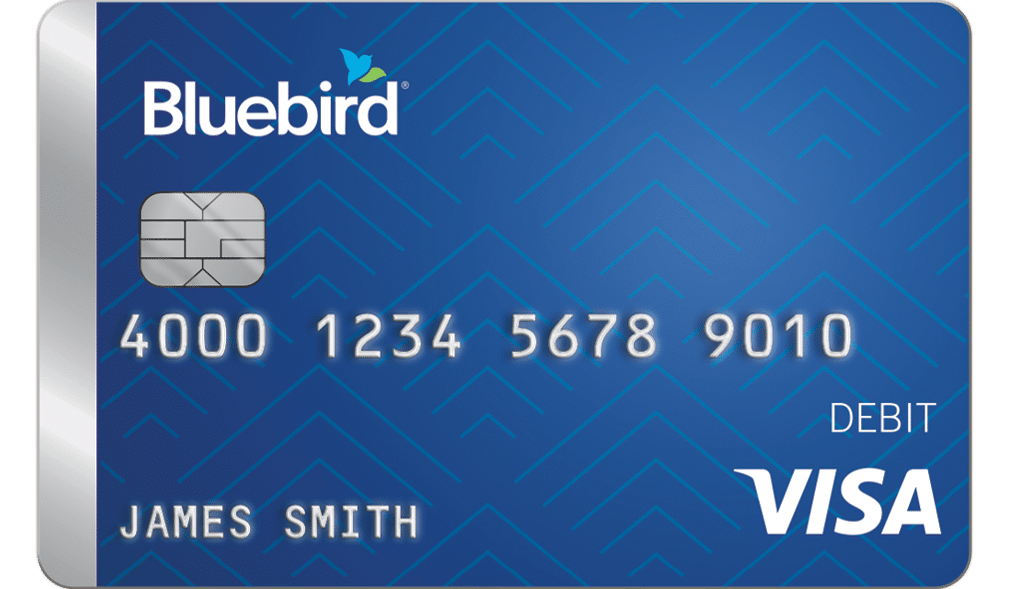
Bluebird is another prepaid debit card that American Express issues. The standout feature of this card is that you won’t have to pay a fee to loan money onto your card. That’s right! It solves one of the most annoying parts of a prepaid debit card for you.
Plus, there is no monthly fee of cost for online activation. With that, the Bluebird by Ameican Express is one of the most affordable options out there. In fact, it's one of the cheapest prepaid debit cards on the market.
The fact that the card is so light on fees makes it a good option for your wallet. But its acceptance at a wide range of retailers makes this card a great fee for most people.
Fifth Third Access 360 Prepaid Debit Card
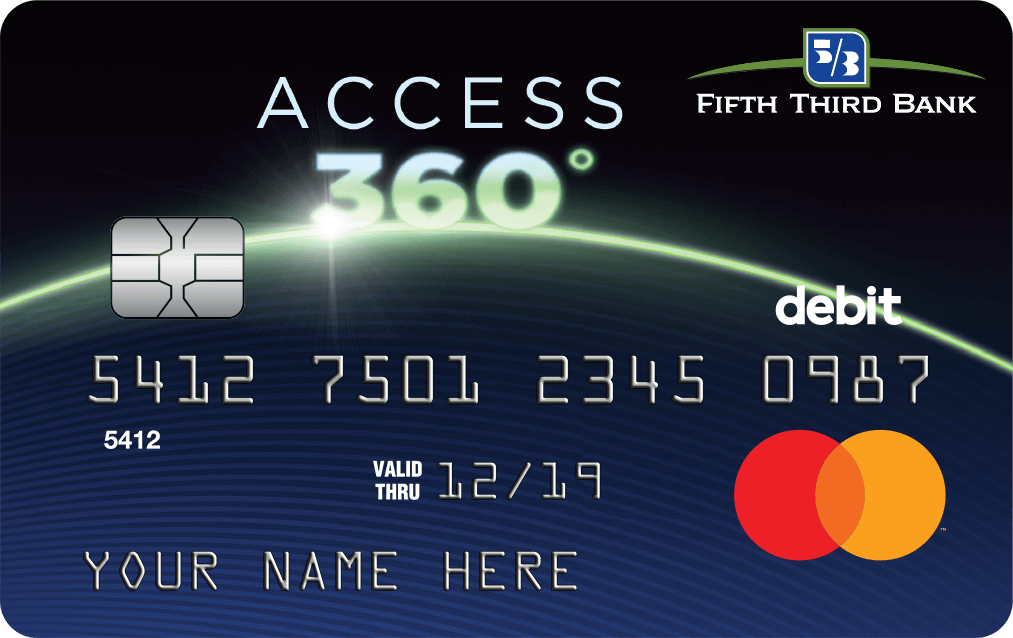
If you need regular access to cash via ATM withdrawals, the Fifth Third Access 360 Prepaid debit card is a great option. The card provides free access to cash withdrawals at over 50,000 ATMs.
Although there is a monthly fee of $4, you’ll find that it's a worthwhile option that offers a lot of bang for your buck. With the Mastercard issue, you’ll be able to make purchases at most major retailers.
The Ideal Situation For A Prepaid Debit Card
A surprising number of people either do not have access to a bank account, or do not want a bank account, according to Time Magazine. However, prepaid debit cards still have impressive benefits for those who do and don’t have bank accounts.
- People seeking a budgeting tool for good spending habits: A prepaid debit card is an excellent resource to help with budgeting without balancing a checkbook or risking overdraft fees in a checking account. You want a card that won't let you overspend, and fortunately, a prepaid card won't let you carry as negative balance. Also, those who have had poor relationships with banks in the past (closed bank accounts and overdraft fees) will find similar benefits in a prepaid debit card.
- You have bad credit or no credit history: People who do not qualify for a traditional credit card may stand to benefit the most from a prepaid debit card. Since you can only spend as much as you have on the card, the risk is low, and a credit check may be required.
- People who want to teach children about spending: A prepaid debit card is also a good option for those with teenagers, children on an allowance, or those with a fixed income who are getting strict with their budgeting.
- People who don't want a bank account: If you are one of the millions of Americans seeking an alternative to traditional banking, prepaid cards can essentially take the place of the basic functions of a bank. You'll be able to hold your funds, keep track of your balance, and spend as needed.
If any of the above categories apply to you, you may be able to benefit from a prepaid debit card. Keep reading to learn more about the advantages and disadvantages of taking this route.
Common Features of Prepaid Debit Cards
While features vary from individual prepaid debit cards, they tend to have these features in common:
Whether used as a budgeting tool or as an alternative way to bank, prepaid debit cards can help you store and spend money productively.
- Activation and Usage Fees: Some cards charge fees for every purchase and ATM transaction and deposits. Many cards also have an activation fee and a monthly fee that can be waived in certain situations, such as setting up direct deposit for your card.
- Spending Limits: Some cards restrict how much you can withdraw, reload or spend during a certain period, such as a day or month.
- Time Limits: Prepaid cards have expiration dates, and you will need to be reissued a card after it expires. However, the actual funds on the card will not expire, so don't worry about losing money.
- ATM access: You may get ATM access to nationwide ATM networks, or networks for cards issued by the bank itself.
- Various flexible options to reload your card: You can reload your card through cash at participating retailers, direct deposits, and also online transfers or mobile check deposits from your smartphone.
What Are the Advantages of a Prepaid Card?
Prepaid debit cards have their advantages and disadvantages, just like any other card. If you have decided a prepaid debit card is for you, here are some of the benefits you will be able to take advantage of:
- Prepaid debit cards help curb spending: A prepaid debit card can help with unexpected and unnecessary spending habits because you literally can't spend more than the funds you add to the card.
- Convenience of adding funds to your card: You can add funds to your card via cash or direct deposit quickly and conveniently.
- Low threshold for qualification: With no credit check or check history requirements, most people can get a prepaid debit card and start using it right away.
- Similar features to bank account: Some prepaid cards have features similar to a bank account and allow you to deposit your paycheck directly to the card.
- Easy to track method of payment: There are some prepaid cards that let you write checks, pay bills online, and provide multiple cards for family members.
What are the Disadvantages of Prepaid Debit Cards?
While prepaid debit cards may mimic an actual debit card, there are restrictions and the potential for high fees that may cause you to think twice before you get a prepaid debit card.
Potential for High Fees: With many prepaid debit cards, you can expect the pay an initial setup fee, a monthly maintenance fee, fees for using an ATM, and fees for reloading your card. To minimize fees, be sure to research each potential card and fees associated with each transaction.
Limitations of prepaid debit cards: Prepaid debit cards do not have the same features you would automatically expect with a checking account and regular debit card, such as online banking, wire transfers, stop payments, or ATM network access without additional fees.
Inability to Build Your Credit History: Since prepaid debit cards are not credit cards, they do not impact your credit history, whether the impact be positive or negative. Any bill payments you make may get reported to a credit reporting agency, but will not get reported to the three major credit bureaus (Transunion, Experian, and Equifax) that determine your FICO score. Keep in mind that your FICO score is a key player in obtaining credit cards, mortgages, and car loans.
If improving or building your credit history is one of your main priorities, consider a secured credit card instead.
Final Thoughts
A prepaid debit card can be a convenient way to store and spend your money. If you think it's right for you, take some time to explore your options. Find the card that aligns best with your spending patterns and habits.
But keep in mind that if you're a disciplined spender who's unlikely to deal with accidental overdrafts and fees, using your checking account debit card is likely to cost you less per month. See our top picks for free checking accounts here >>>

Robert Farrington is America’s Millennial Money Expert® and America’s Student Loan Debt Expert™, and the founder of The College Investor, a personal finance site dedicated to helping millennials escape student loan debt to start investing and building wealth for the future. You can learn more about him on the About Page or on his personal site RobertFarrington.com.
He regularly writes about investing, student loan debt, and general personal finance topics geared toward anyone wanting to earn more, get out of debt, and start building wealth for the future.
He has been quoted in major publications, including the New York Times, Wall Street Journal, Washington Post, ABC, NBC, Today, and more. He is also a regular contributor to Forbes.
Editor: Clint Proctor Reviewed by: Claire Tak
